- Schools
- Volunteering
- Offices
- House prices
- Community cohesion
- High street
- Home delivery
- The Dark Psychology of Social Networks (The Atlantic) — “The philosophers Justin Tosi and Brandon Warmke have proposed the useful phrase moral grandstanding to describe what happens when people use moral talk to enhance their prestige in a public forum. Like a succession of orators speaking to a skeptical audience, each person strives to outdo previous speakers, leading to some common patterns. Grandstanders tend to “trump up moral charges, pile on in cases of public shaming, announce that anyone who disagrees with them is obviously wrong, or exaggerate emotional displays.” Nuance and truth are casualties in this competition to gain the approval of the audience. Grandstanders scrutinize every word spoken by their opponents—and sometimes even their friends—for the potential to evoke public outrage. Context collapses. The speaker’s intent is ignored.”
- Live Your Best Life—On and Off Your Phone—in 2020 (WIRED) — “It’s your devices versus your best life. Just in time for a new decade, though, several fresh books offer a more measured approach to living in the age of technology. These are not self-help books, or even books that confront our relationship with technology head-on. Instead, they examine the realities of a tech-saturated world and offer a few simple ideas for rewriting bad habits, reviewing the devices we actually need, and relearning how to listen amid all the noise.”
- People Who Are Obsessed With Success and Prestige (Bennett Notes) — “What does it look like to be obsessed with success and prestige? It probably looks a lot like me at the moment. A guy who starts many endeavors and side projects just because he wants to be known as the creator of something. This a guy who wants to build another social app, not because he has an unique problem that’s unaddressed, but because he wants to be the cool tech entrepreneur who everyone admires and envies. This is a guy who probably doesn’t care for much of what he does, but continues to do so for the eventual social validation of society and his peers.”
- The Lesson to Unlearn (Paul Graham) — “Merely talking explicitly about this phenomenon is likely to make things better, because much of its power comes from the fact that we take it for granted. After you've noticed it, it seems the elephant in the room, but it's a pretty well camouflaged elephant. The phenomenon is so old, and so pervasive. And it's simply the result of neglect. No one meant things to be this way. This is just what happens when you combine learning with grades, competition, and the naive assumption of unhackability.”
- The End of the Beginning (Stratechery) — “[In consumer-focused startups] few companies are pure “tech” companies seeking to disrupt the dominant cloud and mobile players; rather, they take their presence as an assumption, and seek to transform society in ways that were previously impossible when computing was a destination, not a given. That is exactly what happened with the automobile: its existence stopped being interesting in its own right, while the implications of its existence changed everything.”
- Populism Is Morphing in Insidious Ways (The Atlantic) — “If the 2010s were the years in which predominantly far-right, populist parties permeated the political mainstream, then the 2020s will be when voters “are going to see the consequences of that,” Daphne Halikiopoulou, an associate professor of comparative politics at the University of Reading, in England, told me.”
- It’s the network, stupid: Study offers fresh insight into why we’re so divided (Ars Technica) — “There is no easy answer when it comes to implementing structural changes that encourage diversity, but today's extreme polarization need not become a permanent characteristic of our cultural landscape. "I think we need to adopt new skills as we are transitioning into a more complex, more globalized, and more interconnected world, where each of us can affect far-away parts of the world with our actions," said Galesic.”
- Memorizing Lists of Cognitive Biases Won't Help (Hapgood) — “But if you want to change your own behavior, memorizing long lists of biases isn’t going to help you. If anything it’s likely to just become another weapon in your motivated reasoning arsenal. You can literally read the list of biases to see why reading the list won’t work.”
- How to get more done by doing less (Fast Company) — “Sometimes, the secret to doing more isn’t optimizing every minute, but finding the things you can cull from your schedule. That way, you not only reduce the time you spend on non-essential tasks, but you can also find more time for yourself.”
- You Shouldn’t Have to Be Good at Your Job (GEN) — "This is how the 1% justifies itself. They are not simply the best in terms of income, but in terms of humanity itself. They’re the people who get invited into the escape pods when the mega-asteroid is about to hit. They don’t want a fucking thing to do with the rest of the population and, in fact, they have exploited global economic models to suss out who deserves to be among them and who deserves to be obsolete. And, thanks to lax governments far and wide, they’re free to practice their own mass experiments in forced Darwinism. You currently have the privilege of witnessing a worm’s-eye view of this great culling. Fun, isn’t it?"
- We've spent the decade letting our tech define us. It's out of control (The Guardian) — "There is a way out, but it will mean abandoning our fear and contempt for those we have become convinced are our enemies. No one is in charge of this, and no amount of social science or monetary policy can correct for what is ultimately a spiritual deficit. We have surrendered to digital platforms that look at human individuality and variance as “noise” to be corrected, rather than signal to be cherished. Our leading technologists increasingly see human beings as a problem, and technology as the solution – and they use our behavior on their platforms as evidence of our essentially flawed nature."
- How headphones are changing the sound of music (Quartz) — "Another way headphones are changing music is in the production of bass-heavy music. Harding explains that on small speakers, like headphones or those in a laptop, low frequencies are harder to hear than when blasted from the big speakers you might encounter at a concert venue or club. If you ever wondered why the bass feels so powerful when you are out dancing, that’s why. In order for the bass to be heard well on headphones, music producers have to boost bass frequencies in the higher range, the part of the sound spectrum that small speakers handle well."
- The False Promise of Morning Routines (The Atlantic) — "Goat milk or no goat milk, the move toward ritualized morning self-care can seem like merely a palliative attempt to improve work-life balance.It makes sense to wake up 30 minutes earlier than usual because you want to fit in some yoga, an activity that you enjoy. But something sinister seems to be going on if you feel that you have to wake up 30 minutes earlier than usual to improve your well-being, so that you can also work 60 hours a week, cook dinner, run errands, and spend time with your family."
- Giant surveillance balloons are lurking at the edge of space (Ars Technica) — "The idea of a constellation of stratospheric balloons isn’t new—the US military floated the idea back in the ’90s—but technology has finally matured to the point that they’re actually possible. World View’s December launch marks the first time the company has had more than one balloon in the air at a time, if only for a few days. By the time you’re reading this, its other stratollite will have returned to the surface under a steerable parachute after nearly seven weeks in the stratosphere."
- The Unexpected Philosophy Icelanders Live By (BBC Travel) — "Maybe it makes sense, then, that in a place where people were – and still are – so often at the mercy of the weather, the land and the island’s unique geological forces, they’ve learned to give up control, leave things to fate and hope for the best. For these stoic and even-tempered Icelanders, þetta reddast is less a starry-eyed refusal to deal with problems and more an admission that sometimes you must make the best of the hand you’ve been dealt."
- What Happens When Your Career Becomes Your Whole Identity (HBR) — "While identifying closely with your career isn’t necessarily bad, it makes you vulnerable to a painful identity crisis if you burn out, get laid off, or retire. Individuals in these situations frequently suffer anxiety, depression, and despair. By claiming back some time for yourself and diversifying your activities and relationships, you can build a more balanced and robust identity in line with your values."
- Having fun is a virtue, not a guilty pleasure (Quartz) — "There are also, though, many high-status workers who can easily afford to take a break, but opt instead to toil relentlessly. Such widespread workaholism in part reflects the misguided notion that having fun is somehow an indulgence, an act of absconding from proper respectable behavior, rather than embracement of life. "
- It’s Time to Get Personal (Laura Kalbag) — "As designers and developers, it’s easy to accept the status quo. The big tech platforms already exist and are easy to use. There are so many decisions to be made as part of our work, we tend to just go with what’s popular and convenient. But those little decisions can have a big impact, especially on the people using what we build."
- The 100 Worst Ed-Tech Debacles of the Decade (Hack Education) — "Oh yes, I’m sure you can come up with some rousing successes and some triumphant moments that made you thrilled about the 2010s and that give you hope for “the future of education.” Good for you. But that’s not my job. (And honestly, it’s probably not your job either.)"
- Why so many Japanese children refuse to go to school (BBC News) — "Many schools in Japan control every aspect of their pupils' appearance, forcing pupils to dye their brown hair black, or not allowing pupils to wear tights or coats, even in cold weather. In some cases they even decide on the colour of pupils' underwear. "
- The real scam of ‘influencer’ (Seth Godin) — "And a bigger part is that the things you need to do to be popular (the only metric the platforms share) aren’t the things you’d be doing if you were trying to be effective, or grounded, or proud of the work you’re doing."
- The radical combination of degrowth and basic income (openDemocracy) — "One of the things you hear whenever you talk about degrowth is that, if the economy doesn't grow, people are going to be without jobs, people will go hungry, and no one wants that. Rich countries might be able to afford slowing down their economies, but not poorer ones. You hear this argument mostly in countries from the Global South, like my own. This misses the point. Degrowth is a critique of our dependency on work. This idea that people have to work to stay alive, and thus the economy needs to keep growing for the sake of keeping people working."
- The hypersane are among us, if only we are prepared to look (Aeon) — "It is not just that the ‘sane’ are irrational but that they lack scope and range, as though they’ve grown into the prisoners of their arbitrary lives, locked up in their own dark and narrow subjectivity. Unable to take leave of their selves, they hardly look around them, barely see beauty and possibility, rarely contemplate the bigger picture – and all, ultimately, for fear of losing their selves, of breaking down, of going mad, using one form of extreme subjectivity to defend against another, as life – mysterious, magical life – slips through their fingers."
- "The Tragedy of the Commons": how ecofascism was smuggled into mainstream thought (BoingBoing) — "We are reaching a "peak indifference" tipping point in the climate debate, where it's no longer possible to deny the reality of the climate crisis. I think that many of us assumed that when that happened, we'd see a surge of support for climate justice, the diversion of resources from wealth extraction for the super-rich to climate remediation and defense centered on the public good. But that expectation overestimated the extent to which climate denial was motivated by mere greed."
- What Would It Take to Shut Down the Entire Internet? (Gizmodo) "One imaginative stumbling block, in playing out the implications of [this] scenario, was how something like that could happen in the first place. And so—without advocating any of the methods described below, or strongly suggesting that hundreds or thousands of like-minded heroes band together to take this sucker down once and for all—...we’ve asked a number of cybersecurity experts how exactly one would go about shutting down the entire internet."
- Earning, spending, saving: The currency of influence in open source (Opensource.com) — "Even though you can't buy it, influence behaves like a form of virtual currency in an open source community: a scarce resource, always needed, but also always in short supply. One must earn it through contributions to an open source project or community. In contrast to monetary currency, however, influence is not transferable. You must earn it for yourself. You can neither give nor receive it as a gift."
- The Art of Topophilia: 7 Ways to Love the Place You Live (Art of Manliness) — "It’s not only possible to kindle this kind of topophilic love affair with “sexier” places chock full of well-hyped advantages, but also with so-called undesirable communities that aren’t on the cultural radar. Just as people who may initially appear lowly and unappealing, but have warm and welcoming personalities, come to seem more attractive the more we get to know them, so too can sleepier, less vaunted locales."
- A Like Can’t Go Anywhere, But a Compliment Can Go a Long Way (Frank Chimero) — "Passive positivity isn’t enough; active positivity is needed to counterbalance whatever sort of collective conversations and attention we point at social media. Otherwise, we are left with the skewed, inaccurate, and dangerous nature of what’s been built: an environment where most positivity is small, vague, and immobile, and negativity is large, precise, and spreadable."
- EU recognises "right to repair" in push to make appliances last longer (Dezeen) — "Not included in the EU right to repair rules are devices such as smart phones and laptops, whose irreplaceable batteries and performance-hampering software updates are most often accused of encouraging throwaway culture."
- I'm a Psychotherapist Who Sets 30-Day Challenges Instead of Long-Term Goals. Here's Why (Inc.) — "Studies show our brains view time according to either "now deadlines" or "someday deadlines." And "now deadlines" often fall within this calendar month."
- I Quit Social Media for a Year and Nothing Magical Happened (Josh C. Simmons) — "A lot of social media related aspects of my life are different now – I’m not sure they’re better, they’re just different, but I can confidently say that I prefer this normal to last year’s. There’s a bit of rain with all of the sunshine. I don’t see myself ever going back to social media. I don’t see the point of it, and after leaving for a while, and getting a good outside look, it seems like an abusive relationship – millions of workers generating data for tech-giants to crunch through and make money off of. I think that we tend to forget how we were getting along pretty well before social media – not everything was idyllic and better, but it was fine."
- Face recognition, bad people and bad data (Benedict Evans) — "My favourite example of what can go wrong here comes from a project for recognising cancer in photos of skin. The obvious problem is that you might not have an appropriate distribution of samples of skin in different tones. But another problem that can arise is that dermatologists tend to put rulers in the photo of cancer, for scale - so if all the examples of ‘cancer’ have a ruler and all the examples of ‘not-cancer’ do not, that might be a lot more statistically prominent than those small blemishes. You inadvertently built a ruler-recogniser instead of a cancer-recogniser."
- Would the Internet Be Healthier Without 'Like' Counts? (WIRED) — "Online, value is quantifiable. The worth of a person, idea, movement, meme, or tweet is often based on a tally of actions: likes, retweets, shares, followers, views, replies, claps, and swipes-up, among others. Each is an individual action. Together, though, they take on outsized meaning. A YouTube video with 100,000 views seems more valuable than one with 10, even though views—like nearly every form of online engagement—can be easily bought. It’s a paradoxical love affair. And it’s far from an accident."
- Are Platforms Commons? (On The Horizon) — "[W]hat if ecosystems were constructed so that they were governed by the participants, rather by the hypercapitalist strivings of the platform owners — such as Apple, Google, Amazon, Facebook — or the heavy-handed regulators? Is there a middle ground where the needs of the end user and those building, marketing, and shipping products and services can be balanced, and a fair share of the profits are distributed not just through common carrier laws but by the shared economics of a commons, and where the platform orchestrator gets a fair share, as well?"
- Depression and anxiety threatened to kill my career. So I came clean about it (The Guardian) — "To my surprise, far from rejecting me, students stayed after class to tell me how sorry they were. They left condolence cards in my mailbox and sent emails to let me know they were praying for my family. They stopped by my office to check on me. Up to that point, I’d been so caught up in my despair that it never occurred to me that I might be worthy of concern and support. Being accepted despite my flaws touched me in ways that are hard to express."
- Absolute scale corrupts absolutely (apenwarr) — "Here's what we've lost sight of, in a world where everything is Internet scale: most interactions should not be Internet scale. Most instances of most programs should be restricted to a small set of obviously trusted people. All those people, in all those foreign countries, should not be invited to read Equifax's PII database in Argentina, no matter how stupid the password was. They shouldn't even be able to connect to the database. They shouldn't be able to see that it exists. It shouldn't, in short, be on the Internet."
- The Automation Charade (Logic magazine) — "The problem is that the emphasis on technological factors alone, as though “disruptive innovation” comes from nowhere or is as natural as a cool breeze, casts an air of blameless inevitability over something that has deep roots in class conflict. The phrase “robots are taking our jobs” gives technology agency it doesn’t (yet?) possess, whereas “capitalists are making targeted investments in robots designed to weaken and replace human workers so they can get even richer” is less catchy but more accurate."
- The ambitious plan to reinvent how websites get their names (MIT Technology Review) — "The system would be based on blockchain technology, meaning it would be software that runs on a widely distributed network of computers. In theory, it would have no single point of failure and depend on no human-run organization that could be corrupted or co-opted."
- O whatever God or whatever ancestor that wins in the next life (The Main Event) — "And it begins to dawn on you that the stories were all myths and the epics were all narrated by the villains and the history books were written to rewrite the histories and that so much of what you thought defined excellence merely concealed grift."
- A Famous Argument Against Free Will Has Been Debunked (The Atlantic) — "In other words, people’s subjective experience of a decision—what Libet’s study seemed to suggest was just an illusion—appeared to match the actual moment their brains showed them making a decision."
- You Should Own Your Favorite Books in Hard Copy (Lifehacker) — "Most importantly, when you keep physical books around, the people who live with you can browse and try them out too."
- How Creative Commons drives collaboration (Vox) "Although traditional copyright protects creators from others redistributing or repurposing their works entirely, it also restricts access, for both viewers and makers."
- Key Facilitation Skills: Distinguishing Weird from Seductive (Grassroots Economic Organizing) — "As a facilitation trainer the past 15 years, I've collected plenty of data about which lessons have been the most challenging for students to digest."
- Why Being Bored Is Good (The Walrus) — "Boredom, especially the species of it that I am going to label “neoliberal,” depends for its force on the workings of an attention economy in which we are mostly willing participants."
- 5: People having fun on the internet (Near Future Field Notes) — "The internet is still a really great place to explore. But you have to get back into Internet Nature instead of spending all your time in Internet Times Square wondering how everything got so loud and dehumanising."
- The work of a sleepwalking artist offers a glimpse into the fertile slumbering brain (Aeon) "Lee Hadwin has been scribbling in his sleep since early childhood. By the time he was a teen, he was creating elaborate, accomplished drawings and paintings that he had no memory of making – a process that continues today. Even stranger perhaps is that, when he is awake, he has very little interest in or skill for art."
- The Power of One Push-Up (The Atlantic) — "Essentially, these quick metrics serve as surrogates that correlate with all kinds of factors that determine a person’s overall health—which can otherwise be totally impractical, invasive, and expensive to measure directly. If we had to choose a single, simple, universal number to define health, any of these functional metrics might be a better contender than BMI."
- How Wechat censors images in private chats (BoingBoing) — "Wechat maintains a massive index of the MD5 hashes of every image that Chinese censors have prohibited. When a user sends another user an image that matches one of these hashes, it's recognized and blocked at the server before it is transmitted to the recipient, with neither the recipient or the sender being informed that the censorship has taken place."
- It's Never Too Late to Be Successful and Happy (Invincible Career) — "The “race” we are running is a one-person event. The most important comparison is to yourself. Are you doing better than you were last year? Are you a better person than you were yesterday? Are you learning and growing? Are you slowly figuring out what you really want, what makes you happy, and what fulfillment means for you?"
- 'Blitzscaling' Is Choking Innovation—and Wasting Money (WIRED) — "If we learned anything from the dotcom bubble at the turn of the century, it’s that in an environment of abundant capital, money does not necessarily bestow competitive advantage. In fact, spending too much, to soon on unproven business models only heightens the risk that a company's race for global domination can become a race to oblivion."
- Deepfakes will influence the 2020 election—and our economy, and our prison system (Quartz) — “The problem doesn’t stop at the elections, however. Deepfakes can alter the very fabric of our economic and legal systems. Recently, we saw a deepfake video of Facebook CEO Mark Zuckerberg bragging about abusing data collected from users circulated on the internet. The creators of this video said it was produced to demonstrate the power of manipulation and had no malicious intent—yet it revealed how deceptively realistic deepfakes can be.”
- The Slackification of the American Home (The Atlantic) — “Despite these tools’ utility in home life, it’s work where most people first become comfortable with them. 'The membrane that divides work and family life is more porous than it’s ever been before,' says Bruce Feiler, a dad and the author of The Secrets of Happy Families. 'So it makes total sense that these systems built for team building, problem solving, productivity, and communication that were invented in the workplace are migrating to the family space'.”
- You probably don’t know what your coworkers think of you. Here’s how to change that (Fast Company) — “[T]he higher you rise in an organization, the less likely you are to get an accurate picture of how other people view you. Most people want to be viewed favorably by others in a position of power. Once you move up to a supervisory role (or even higher), it is difficult to get people to give you a straight answer about their concerns.”
- Sharing, Generosity and Gratitude (Cable Green, Creative Commons) — “David is home recovering and growing his liver back to full size. I will be at the Mayo Clinic through the end of July. After the Mayo surgeons skillfully transplanted ⅔ of David’s liver into me, he and I laughed about organ remixes, if he should receive attribution, and wished we’d have asked for a CC tattoo on my new liver.”
- Flexibility as a key benefit of open (The Ed Techie) — “As I chatted to Dames and Lords and fiddled with my tie, I reflected on that what is needed for many of these future employment scenarios is flexibility. This comes in various forms, and people often talk about personalisation but it is more about institutional and opportunity flexibility that is important.”
- Abolish Eton: Labour groups aim to strip elite schools of privileges (The Guardian) — “Private schools are anachronistic engines of privilege that simply have no place in the 21st century,” said Lewis. “We cannot claim to have an education system that is socially just when children in private schools continue to have 300% more spent on their education than children in state schools.”
- I Can't Stop Winning! (Pinboard blog) - “A one-person business is an exercise in long-term anxiety management, so I would say if you are already an anxious person, go ahead and start a business. You're not going to feel any worse. You've already got the main skill set of staying up and worrying, so you might as well make some money.”
- How To Be The Remote Employee That Proves The Stereotypes Aren’t True (Trello blog) — “I am a big fan of over-communicating in general, and I truly believe that this is a rule all remote employees should swear by.”
- I Used Google Ads for Social Engineering. It Worked. (The New York Times) — “Ad campaigns that manipulate searchers’ behavior are frighteningly easy for anyone to run.”
- Road-tripping with the Amazon Nomads (The Verge) — “To stock Amazon’s shelves, merchants travel the backroads of America in search of rare soap and coveted toys.”
Everything intercepts us from ourselves

🤝 Medieval English people used to pay their rent in eels
🤺 The Mad, Mad World of Niche Sports Among Ivy League–Obsessed Parents
📜 Archaeologists unearth 'huge number' of sealed Egyptian sarcophagi
🌉 3D model of how the Charles bridge in Prague was constructed
💪 Every Man Should Be Able to Save His Own Life: 5 Fitness Benchmarks a Man Must Master
Quotation by Ralph Waldo Emerson. Image from top-linked post.
Seeing through is rarely seeing into
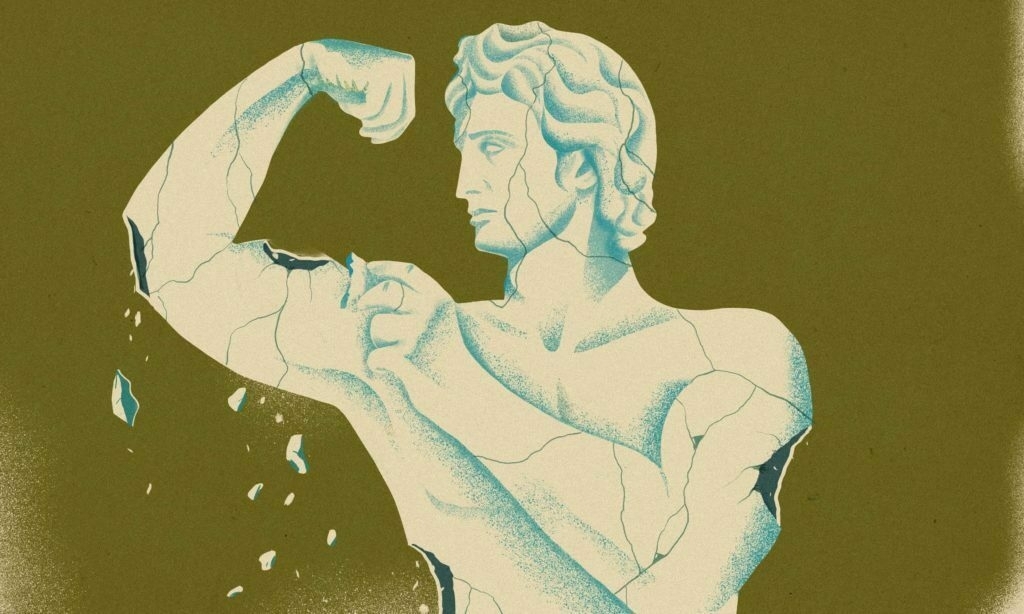
♂️ What does it mean to be a man in 2020? Introducing our news series on masculinity
✏️ Your writing style is costly (Or, a case for using punctuation in Slack)
Quotation-as-title by Elizabeth Bransco. Image from top-linked post.
Lifequakes
One way of thinking about the pandemic is as inevitable, and just one of a series of life-changing events that will happen to you during your time on earth.
Whereas some people seem to think that life should be trouble- and pain-free, it's clear by even a cursory glance at history that this an impossible expectation.
This article is a useful one for reframing the pandemic as a change that we're literally all going through together, but which will affect us differently:
Transitions feel like an abnormal disruption to life, but in fact they are a predictable and integral part of it. While each change may be novel, major life transitions happen with clocklike regularity. Life is one long string of them, in fact. The author Bruce Feiler wrote a book called Life Is in the Transitions: Mastering Change at Any Age. After interviewing hundreds of people about their transitions, he found that a major change in life occurs, on average, every 12 to 18 months. Huge ones—what Feiler calls “lifequakes”—happen three to five times in each person’s life. Some lifequakes are voluntary and joyful, such as getting married or having a child. Others are involuntary and unwelcome, such as unemployment or life-threatening illness.
Arthur C. Brooks, The Clocklike Regularity of Major Life Changes (The Atlantic)
Saturday spinnings
As usual, I'm taking a month off Thought Shrapnel duties during the month of August. So this is my last post for a few weeks.
In the meantime, consider deactivating your Facebook, Instagram and Twitter accounts. See how it makes you feel, and perhaps I'll run into you on the Fediverse? (start here)

I Am a Model and I Know That Artificial Intelligence Will Eventually Take My Job
There are major issues of transparency and authenticity here because the beliefs and opinions don’t actually belong to the digital models, they belong to the models’ creators. And if the creators can’t actually identify with the experiences and groups that these models claim to belong to (i.e., person of color, LGBTQ, etc.), then do they have the right to actually speak on those issues? Or is this a new form of robot cultural appropriation, one in which digital creators are dressing up in experiences that aren’t theirs?
Sinead Bovell (Vogue)
This is an incredible article that looks at machine learning and AI through the lens of an industry I hadn't thought of as being on the brink of being massively disrupted by technology.
How Capitalism Drives Cancel Culture
It is strange that “cancel culture” has become a project of the left, which spent the 20th century fighting against capricious firings of “troublesome” employees. A lack of due process does not become a moral good just because you sometimes agree with its targets. We all, I hope, want to see sexism, racism, and other forms of discrimination decrease. But we should be aware of the economic incentives here, particularly given the speed of social media, which can send a video viral, and see onlookers demand a response, before the basic facts have been established. Afraid of the reputational damage that can be incurred in minutes, companies are behaving in ways that range from thoughtless and uncaring to sadistic.
[...]
If you care about progressive causes, then woke capitalism is not your friend. It is actively impeding the cause, siphoning off energy, and deluding us into thinking that change is happening faster and deeper than it really is. When people talk about the “excesses of the left”—a phenomenon that blights the electoral prospects of progressive parties by alienating swing voters—in many cases they’re talking about the jumpy overreactions of corporations that aren’t left-wing at all.
Helen Lewis (The Atlantic)
Cancel culture is problematic, and mainly because of the unequal power structures involved. This is an important read. See also this article by Albert Wenger which has some suggestions towards the end in this regard.

How to Stay Productive When the World Is on Fire
The goal of productivity is to get the things you have to get done finished so you can spend more time on the things you want to do. Don’t fall into the busy trap, where you judge your self-worth by how productive you are or how much you’ve contributed to your company or manager. We’re all just trying to keep our heads above water. I hope these tips will help you do the same.
Alan Henry (WIRED)
As I wrote yesterday on my personal blog, I have a bit of an issue with perfectionism. So this reminder, along with the other great advice in the article, was a timely reminder.
Why you should be thanking your employees more often
If you treat somebody with disdain, of course, you give that person a psychological incentive to diminish your opinion and to want you to be less powerful. Inversely, if you demonstrate understanding and appreciation of someone’s contribution, you create a psychological incentive in the individual to give greater weight to your opinion. And that person will want to strengthen the weight of your opinion in the eyes of others. Appreciation and gratitude breed appreciation and gratitude.
Bruce Tulgan (Fast Company)
Creating a productive, psychologically safe, and emotionally intelligent environment means thanking people for the work they do. That means for their day-to-day activities, not just when they put in a herculean effort. A paycheck is not thanks enough for the work we do and the value we provide.

Nostalgia reimagined
More interesting still is that nostalgia can bring to mind time-periods we didn’t directly experience. In the film Midnight in Paris (2011), Gil is overwhelmed by nostalgic thoughts about 1920s Paris – which he, a modern-day screenwriter, hasn’t experienced – yet his feelings are nothing short of nostalgic. Indeed, feeling nostalgic for a time one didn’t actually live through appears to be a common phenomenon if all the chatrooms, Facebook pages and websites dedicated to it are anything to go by. In fact, a new word has been coined to capture this precise variant of nostalgia – anemoia, defined by the Urban Dictionary and the Dictionary of Obscure Sorrows as ‘nostalgia for a time you’ve never known’.
How can we make sense of the fact that people feel nostalgia not only for past experiences but also for generic time periods? My suggestion, inspired by recent evidence from cognitive psychology and neuroscience, is that the variety of nostalgia’s objects is explained by the fact that its cognitive component is not an autobiographical memory, but a mental simulation – an imagination, if you will – of which episodic recollections are a sub-class.
Nigel Warburton (Aeon)
In the UK at least, shows like Downton Abbey and Call The Midwife are popular. My view of this is that, as this article would seem to support, it's a kind of nostalgia for a time that was imagined to be better.
There's a sinister side to this, as well. This kind of nostalgia seems to be particularly prevalent among more conservative-leaning (white) people harking back to a time of greater divisions in society along race and class lines. I think it's rather disturbing.
The World Is Noisy. These Groups Want to Restore the Quiet
Quiet Parks International (QPI) is a nonprofit working to establish certification for quiet parks to raise awareness of and preserve quiet places. The fledgling organization—whose members include audio engineers, scientists, environmentalists, and musicians—has identified at least 262 sites worldwide, including 30 in the US, that it believes are quiet or could become so with management changes....
QPI has no regulatory authority, but like the International Dark Sky Association’s Dark Sky Parks initiative, the nonprofit believes its certification—granted only after a detailed, three-day sound analysis—can encourage public support of preservation efforts and provide guidelines for protection. “The places that are quiet today … are basically leftovers—places that are out of the way,” Quiet Parks cofounder Gordon Hempton says.
Jenny Morber (WIRED)
I live in a part of the world close to both a designated Dark Sky Park and mountains into which I can escape. Light and noise pollution threaten both of them, so I'm glad to hear of these efforts.
Header image by Uillian Vargas
Friday fashionings
When sitting down to put together this week's round-up, which is coming to you slightly later than usual because of <gestures indeterminately> all this, I decided that I'd only focus on things that are positive; things that might either raise a smile or make you think "oh, interesting!"
Let me know if I've succeeded in the comments below, via Twitter, Mastodon, or via email!
Digital Efficiency: the appeal of the minimalist home screen
The real advantage of going with a launcher like this instead of a more traditional one is simple: distraction reduction and productivity increases. Everything done while using this kind of setup is deliberate. There is no scrolling through pages upon pages of apps. There is no scrolling through Google Discover with story after story that you will probably never read. Instead between 3–7 app shortcuts are present, quick links to clock and calendar, and not much else. This setup requires you as the user to do an inventory of what apps you use the most. It really requires the user to rethink how they use their phone and what apps are the priority.
Omar Zahran (UX Collective)
A year ago, I wrote a post entitled Change your launcher, change your life about minimalist Android launchers. I'm now using the Before Launcher, because of the way you can easily and without any fuss customise notifications. Thanks to Ian O'Byrne for the heads-up in the We Are Open Slack channel.
It's Time for Shoulder Stretches
Cow face pose is the yoga name for that stretch where one hand reaches down your back, and the other hand reaches up. (There’s a corresponding thing you do with your legs, but forget it for now—we’re focusing on shoulders today.) If you can’t reach your hands together, it feels like a challenging or maybe impossible pose.
Lifehacker UK
I was pretty shocked that I couldn't barely do this with my right hand at the top and my left at the bottom. I was very shocked that I got nowhere near the other way around. It just goes to show that those people who work at home really need to work on back muscles and flexibility.
Dr. Seuss’s Fox in Socks Rapped Over Dr. Dre’s Beats
As someone who a) thinks Dr. Dre was an amazing producer, and b) read Dr. Seuss’s Fox in Socks to his children roughly 1 million times (enough to be able to, eventually, get through the entire book at a comically high rate of speed w/o any tongue twisting slip-ups), I thought Wes Tank’s video of himself rapping Fox in Socks over Dre’s beats was really fun and surprisingly well done.
Jason Kottke
One of the highlights of my kids being a bit younger than they are now was to read Dr. Suess to them. Fox in Socks was my absolute tongue-twisting favourite! So this blew me away, and then when I went through to YouTube, the algorithm recommended Daniel Radcliffe (the Harry Potter star) rapping Blackalicious' Alphabet Aerobics. Whoah.

Google launches free version of Stadia with a two-month Pro trial
Google is launching the free version of its Stadia game streaming service today. Anyone with a Gmail address can sign up, and Google is even providing a free two-month trial of Stadia Pro as part of the launch. It comes just two months after Google promised a free tier was imminent, and it will mean anyone can get access to nine titles, including GRID, Destiny 2: The Collection, and Thumper, free of charge.
Tom Warren (The Verge)
This is exactly the news I've been waiting for! Excellent.
Now is a great time to make some mediocre art
Practicing simple creative acts on a regular basis can give you a psychological boost, according to a 2016 study in the Journal of Positive Psychology. A 2010 review of more than 100 studies of art’s impact on health revealed that pursuits like music, writing, dance, painting, pottery, drawing, and photography improved medical outcomes, mental health, social networks, and positive identity. It was published in the American Journal of Public Health.
Gwen Moran (Fast Company)
I love all of the artists on Twitter and Instagram giving people daily challenges. My family have been following along with some of them!
What do we hear when we dream?
[R]esearchers at Norway's Vestre Viken Hospital Trust and the University of Bergen conducted a small study to quantify the auditory experience of dreamers. Why? Because they wanted to "assess the relevance of dreaming as a model for psychosis." Throughout history, they write, psychologists have considered dreamstates to be a model for psychosis, yet people experiencing psychosis usually suffer from auditory hallucinations far more than visual ones. Basically, what the researchers determined is that the reason so little is known about auditory sensations while dreaming is because, well, nobody asks what people's dreams sound like.
David Pescovitz (Boing boing)
This makes sense, if you think about it. The advice for doing online video is always that you get the audio right first. It would seem that it's the same for dreaming: that we pay attention more to what we 'hear' than what we 'see'.

How boredom can inspire adventure
Humans can’t stand being bored. Studies show we’ll do just about anything to avoid it, from compulsive smartphone scrolling right up to giving ourselves electric shocks. And as emotions go, boredom is incredibly good at parting us from our money – we’ll even try to buy our way out of the feeling with distractions like impulse shopping.
Erin Craig (BBC Travel)
The story in this article about a prisoner of war who dreamed up a daring escape is incredible, but does make the point that dreaming big when you're locked down is a grat idea.
But what could you learn instead?
“What did you learn today,” is a fine question to ask. Particularly right this minute, when we have more time and less peace of mind than is usually the norm.
It’s way easier to get someone to watch–a YouTube comic, a Netflix show, a movie–than it is to encourage them to do something. But it’s the doing that allows us to become our best selves, and it’s the doing that creates our future.
It turns out that learning isn’t in nearly as much demand as it could be. Our culture and our systems don’t push us to learn. They push us to conform and to consume instead.
The good news is that each of us, without permission from anyone else, can change that.
Seth Godin
A timely, inspirational post from the always readable (and listen-worthy) Seth Godin.
The Three Equations for a Happy Life, Even During a Pandemic
This column has been in the works for some time, but my hope is that launching it during the pandemic will help you leverage a contemplative mindset while you have the time to think about what matters most to you. I hope this column will enrich your life, and equip you to enrich the lives of the people you love and lead.
Arthur C. Brooks (The atlantic)
A really handy way of looking at things, and I'm hoping that further articles in the series are just as good.
Images by Kevin Burg and Jamie Beck (they're all over Giphy so I just went to the original source and used the hi-res versions)
Friday forebodings
I think it's alright to say that this was a week when my spirits dropped a little. Apologies if that's not what you wanted to hear right now, and if it's reflected in what follows.
For there to be good things there must also be bad. For there to be joy there must also be sorrow. And for there to be hope there must be despair. All of this will pass.
We’re Finding Out How Small Our Lives Really Are
But there’s no reason to put too sunny a spin on what’s happening. Research has shown that anticipation can be a linchpin of well-being and that looking ahead produces more intense emotions than retrospection. In a 2012 New York Times article on why people thirst for new experiences, one psychologist told the paper, “Novelty-seeking is one of the traits that keeps you healthy and happy and fosters personality growth as you age,” and another referred to human beings as a “neophilic species.” Of course, the current blankness in the place of what comes next is supposed to be temporary. Even so, lacking an ability to confidently say “see you later” is going to have its effects. Have you noticed the way in which conversations in this era can quickly become recursive? You talk about the virus. Or you talk about what you did together long ago. The interactions don’t always spark and generate as easily as they once did.
Spencer Kornhaber (The Atlantic)
Part of the problem with all of this is that we don't know how long it's going to last, so we can't really make plans. It's like an extended limbo where you're supposed to just get on with it, whatever 'it' is...
Career Moats in a Recession
If you're going after a career moat now, remember that the best skills to go after are the ones that the market will value after the recession ends. You can’t necessarily predict this — the world is complex and the future is uncertain, but you should certainly keep the general idea in mind.
A simpler version of this is to go after complementary skills to your current role. If you've been working for a bit, it's likely that you'll have a better understanding of your industry than most. So ask yourself: what complementary skills would make you more valuable to the employers in your job market?
Cedric James (Commonplace)
I'm fortunate to have switched from education to edtech at the right time. Elsewhere, James says that "job security is the ability to get your next job, not keep your current one" and that this depends on your network, luck, and having "rare and valuable skills". Indeed.
Everything Is Innovative When You Ignore the Past
This is hard stuff, and acknowledging it comes with a corollary: We, as a society, are not particularly special. Vinsel, the historian at Virginia Tech, cautioned against “digital exceptionalism,” or the idea that everything is different now that the silicon chip has been harnessed for the controlled movement of electrons.
It’s a difficult thing for people to accept, especially those who have spent their lives building those chips or the software they run. “Just on a psychological level,” Vinsel said, “people want to live in an exciting moment. Students want to believe they’re part of a generation that’s going to change the world through digital technology or whatever.”
Aaron Gordon (VICE)
Everyone thinks they live in 'unprecedented' times, especially if they work in tech.

‘We can’t go back to normal’: how will coronavirus change the world?
But disasters and emergencies do not just throw light on the world as it is. They also rip open the fabric of normality. Through the hole that opens up, we glimpse possibilities of other worlds. Some thinkers who study disasters focus more on all that might go wrong. Others are more optimistic, framing crises not just in terms of what is lost but also what might be gained. Every disaster is different, of course, and it’s never just one or the other: loss and gain always coexist. Only in hindsight will the contours of the new world we’re entering become clear.
Peter C Baker (the Guardian)
An interesting read, outlining the optimistic and pessimistic scenarios. The coronavirus pandemic is a crisis, but of course what comes next (CLIMATE CHANGE) is even bigger.
The Terrible Impulse To Rally Around Bad Leaders In A Crisis
This tendency to rally around even incompetent leaders makes one despair for humanity. The correct response in all cases is contempt and an attempt, if possible, at removal of the corrupt and venal people in charge. Certainly no one should be approving of the terrible jobs they [Cuomo, Trump, Johnson] have done.
All three have or will use their increased power to do horrible things. The Coronavirus bailout bill passed by Congress and approved by Trump is a huge bailout of the rich, with crumbs for the poor and middle class. So little, in fact, that there may be widespread hunger soon. Cuomo is pushing forward with his cuts, and I’m sure Johnson will live down to expectations.
Ian Welsh
I'm genuinely shocked that the current UK government's approval ratings are so high. Yes, they're covering 80% of the salary of those laid-off, but the TUC was pushing for an even higher figure. It's like we're congratulating neoliberal idiots for destroying our collectively ability to be able to respond to this crisis effectively.
As Coronavirus Surveillance Escalates, Personal Privacy Plummets
Yet ratcheting up surveillance to combat the pandemic now could permanently open the doors to more invasive forms of snooping later. It is a lesson Americans learned after the terrorist attacks of Sept. 11, 2001, civil liberties experts say.
Nearly two decades later, law enforcement agencies have access to higher-powered surveillance systems, like fine-grained location tracking and facial recognition — technologies that may be repurposed to further political agendas like anti-immigration policies. Civil liberties experts warn that the public has little recourse to challenge these digital exercises of state power.
Natasha Singer and Choe Sang-Hun (The New York Times)
I've seen a lot of suggestions around smarpthone tracking to help with the pandemic response. How, exactly, when it's trivial to spoof your location? It's just more surveillance by the back door.

How to Resolve Any Conflict in Your Team
Have you ever noticed that when you argue with someone smart, if you manage to debunk their initial reasoning, they just shift to a new, logical-sounding reason?
Reasons are like a salamander’s legs — if you cut one off, another grows in its place.
When you’re dealing with a salamander, you need to get to the heart. Forget about reasoning and focus on what’s causing the emotions. According to [non-violent communication], every negative emotion is the result of an unmet, universal need.
Dave bailey
Great advice here, especially for those who work in organisations (or who have clients) who lack emotional intelligence.
2026 – the year of the face to face pivot
When the current crisis is over in terms of infection, the social and economic impact will be felt for a long time. One such hangover is likely to be the shift to online for so much of work and interaction. As the cartoon goes “these meetings could’ve been emails all along”. So let’s jump forward then a few years when online is the norm.
Martin Weller (The Ed Techie)
Some of the examples given in this post gave me a much-needed chuckle.
Now's the time – 15 epic video games for the socially isolated
However, now that many of us are finding we have time on our hands, it could be the opportunity we need to attempt some of the more chronologically demanding narrative video game masterpieces of the last decade.
Keith Stuart (The Guardian)
Well, yes, but what we probably need even more is multiplayer mode. Red Dead Redemption II is on this list, and it's one of the best games ever made. However, it's tinged with huge sadness for me as it's a game I greatly enjoyed playing with the late, great, Dai Barnes.
Enjoy this? Sign up for the weekly roundup, become a supporter, or download Thought Shrapnel Vol.1: Personal Productivity!
Header image by Alex Fu
Friday flickerings
I've tried to include some links here to other things here, but just like all roads read to Rome, all links eventually point to the pandemic.
I hope you and people that you care about are well. Stay safe, stay indoors, and let me know which of the following resonate with you!
Supermensch
Our stories about where inventiveness comes from, and how the future will be made, overwhelmingly focus on the power of the individual. Such stories appeal to the desire for human perfection (and redemption?) recast in technological language, and they were integral to the way that late-19th-century inventor-entrepreneurs, such as Tesla or Thomas Edison, presented themselves to their publics. They’re still very much part of the narrative of technological entrepreneurism now. Just as Tesla wanted to be seen as a kind of superhero of invention, unbound by conventional restraints, so too do his contemporary admirers at the cutting edge of the tech world. Superheroes resonate within that culture precisely because they embody in themselves the perception of technology as something that belongs to powerful and iconoclastic individuals. They epitomise the idea that technological culture is driven by outsiders. The character of Iron Man makes this very clear: after all, he really is a tech entrepreneur, his superpowers the product of the enhanced body armour he wears.
Iwan Rhys Morus (Aeon)
A really interesting read about the link between individualism, superheroes, technology, and innovation.
The Second Golden Age of Blogging
Blogging was then diffused into social media, but now social media is so tribal and algo-regulated that anybody with a real message today needs their own property. At the same time, professional institutions are increasingly suffocated by older, rent-seeking incumbents and politically-correct upstarts using moralism as a career strategy. In such a context, blogging — if it is intelligent, courageous, and consistent — is currently one of the most reliable methods for intellectually sophisticated individuals to accrue social and cultural capital outside of institutions. (Youtube for the videographic, Instagram for the photographic, podcasting for the loquacious, but writing and therefore blogging for the most intellectually sophisticated.)
Justin Murphy (Other LIfe)
I've been blogging since around 2004, so for sixteen years, and through all of my career to date. It's the best and most enjoyable thing about 'work'.
NASA Fixes Mars Lander By Telling It to Hit Itself With a Shovel
NASA expected its probe, dubbed “the mole,” to dig its way through sand-like terrain. But because the Martian soil clumped together, the whole apparatus got stuck in place.
Programming InSight’s robotic arm to land down on the mole was a risky, last-resort maneuver, PopSci reports, because it risked damaging fragile power and communication lines that attached nearby. Thankfully, engineers spent a few months practicing in simulations before they made a real attempt.
Dan Robitzski (Futurism)
The idea of NASA engineers sending a signal to a distant probe to get it to hit itself, in the midst of a crisis on earth, made me chuckle this week.
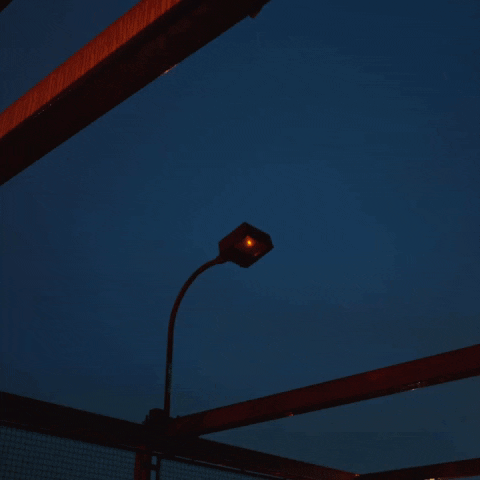
Act as if You’re Really There
Don’t turn your office into a generic TV backdrop. Video is boring enough. The more you remove from the frame, the less visual data you are providing about who you are, where you live, how you work, and what you care about. If you were watching a remote interview with, say, Bong Joon-ho (the South Korean director of Parasite) would you want him sitting on a blank set with a ficus plant? Of course not. You would want to see him in his real office or studio. What are the posters on his wall? The books on his shelf? Who are his influences?
Douglas Rushkoff (OneZero)
Useful advice in this post from Douglas Rushkoff. I appreciate his reflection that, "every pixel is a chance to share information about your process and proclivities."
People Are Looping Videos to Fake Paying Attention in Zoom Meetings
On Twitter, people are finding ways to use the Zoom Rooms custom background feature to slap an image of themselves in their frames. You can record a short, looping video as your background, or take a photo of yourself looking particularly attentive, depending on the level of believability you're going for. Zoom says it isn't using any kind of video or audio analysis to track attention, so this is mostly for your human coworkers and boss' sake. With one of these images on your background, you're free to leave your seat and go make a sandwich while your boss thinks you're still there paying attention:
Samantha Cole (Vice)
As an amusing counterpoint to the above article, I find it funny that people are using video backgrounds in this way!
A Guide to Hosting Virtual Events with Zoom
There are lots of virtual event tools out there, like Google Hangouts, YouTube Live, Vimeo Live. For this guide I’ll delve into how to use Zoom specifically. However, a lot of the best practices explored here are broadly applicable to other tools. My goal is that reading this document will give you all the tools you need to be able to set up a meeting and host it on Zoom (or other platforms) in fun and interactive ways.
Alexa Kutler (Google Docs)
This is an incredible 28-page document that explains how to set up Zoom meetings for success. Highly recommended!

The rise of the bio-surveillance state
Elements of Asia’s bio-surveillance revolution may not be as far off as citizens of Western democracies assume. On 24 March an emergency bill, which would relax limits on urgent surveillance warrants, went before the House of Lords. In any case, Britain’s existing Investigatory Powers Act already allows the state to seize mobile data if national security justifies it. In another sign that a new era in data rights is dawning, the EU is reviewing its recent white paper on AI regulation and delaying a review of online privacy rules. Researchers in both Britain (Oxford) and the US (MIT) are developing virus-tracking apps inviting citizens to provide movement data voluntarily. How desperate would the search for “needles in haystacks” have to get for governments to make such submissions compulsory? Israel’s draconian new regulations – which allegedly include tapping phone cameras and microphones – show how far down this road even broadly Western democracies might go to save lives and economies.
Jeremy Cliffe (New Statesman)
We need urgent and immediate action around the current criss. But we also need safeguards and failsafes so that we don't end up with post-pandemic authoritarian regimes.
The economy v our lives? It's a false choice – and a deeply stupid one
Soon enough, as hospitals around the world overflow with coronavirus patients, exhausting doctors, nurses, orderlies, custodians, medical supplies, ventilators and hospital cash accounts, doctors will have to make moral choices about who lives or dies. We should not supersede their judgment based on a false choice. Economic depression will come, regardless of how many we let die. The question is how long and devastating it will be.
Siva Vaidhyanathan (The Guardian)
Not exactly a fun read, but the truth is the world's economy is shafted no matter which way we look at it. And as I tweeted the other day, there's no real thing that exists, objectively speaking called 'the economy' which is separate from human relationships.
How the Pandemic Will End
Pandemics can also catalyze social change. People, businesses, and institutions have been remarkably quick to adopt or call for practices that they might once have dragged their heels on, including working from home, conference-calling to accommodate people with disabilities, proper sick leave, and flexible child-care arrangements. “This is the first time in my lifetime that I’ve heard someone say, ‘Oh, if you’re sick, stay home,’” says Adia Benton, an anthropologist at Northwestern University. Perhaps the nation will learn that preparedness isn’t just about masks, vaccines, and tests, but also about fair labor policies and a stable and equal health-care system. Perhaps it will appreciate that health-care workers and public-health specialists compose America’s social immune system, and that this system has been suppressed.
Ed Yong (The Atlantic)
Much of this is a bit depressing, but I've picked up on the more positive bit towards the end. See also the article I wrote earlier this week: People seem not to see that their opinion of the world is also a confession of character
Enjoy this? Sign up for the weekly roundup, become a supporter, or download Thought Shrapnel Vol.1: Personal Productivity!
Header image by Sincerely Media.
Friday fumings
My bet is that you've spent most of this week reading news about the global pandemic. Me too. That's why I decided to ensure it's not mentioned at all in this week's link roundup!
Let me know what resonates with you... 😷
Finding comfort in the chaos: How Cory Doctorow learned to write from literally anywhere
My writing epiphany — which arrived decades into my writing career — was that even though there were days when the writing felt unbearably awful, and some when it felt like I was mainlining some kind of powdered genius and sweating it out through my fingertips, there was no relation between the way I felt about the words I was writing and their objective quality, assessed in the cold light of day at a safe distance from the day I wrote them. The biggest predictor of how I felt about my writing was how I felt about me. If I was stressed, underslept, insecure, sad, hungry or hungover, my writing felt terrible. If I was brimming over with joy, the writing felt brilliant.
Cory Doctorow (CBC)
Such great advice in here from the prolific Cory Doctorow. Not only is he a great writer, he's a great speaker, too. I think both come from practice and clarity of thought.
Slower News
Trends, micro-trends & edge cases.
This is a site that specialises in important and interesting news that is updated regularly, but not on an hour-by-hour (or even daily) basis. A wonderful antidote to staring at your social media feed for updates!
SCARF: The 5 key ingredients for psychological safety in your team
There’s actually a mountain of compelling evidence that the single most important ingredient for healthy, high-performing teams is simple: it’s trust. When Google famously crunched the data on hundreds of high-performing teams, they were surprised to find that one variable mattered more than any other: “emotional safety.” Also known as: “psychological security.” Also known as: trust.
Matt Thompson
I used to work with Matt at Mozilla, and he's a pretty great person to work alongside. He's got a book coming out this year, and Laura (another former Mozilla colleague, but also a current co-op colleague!) drew my attention to this.
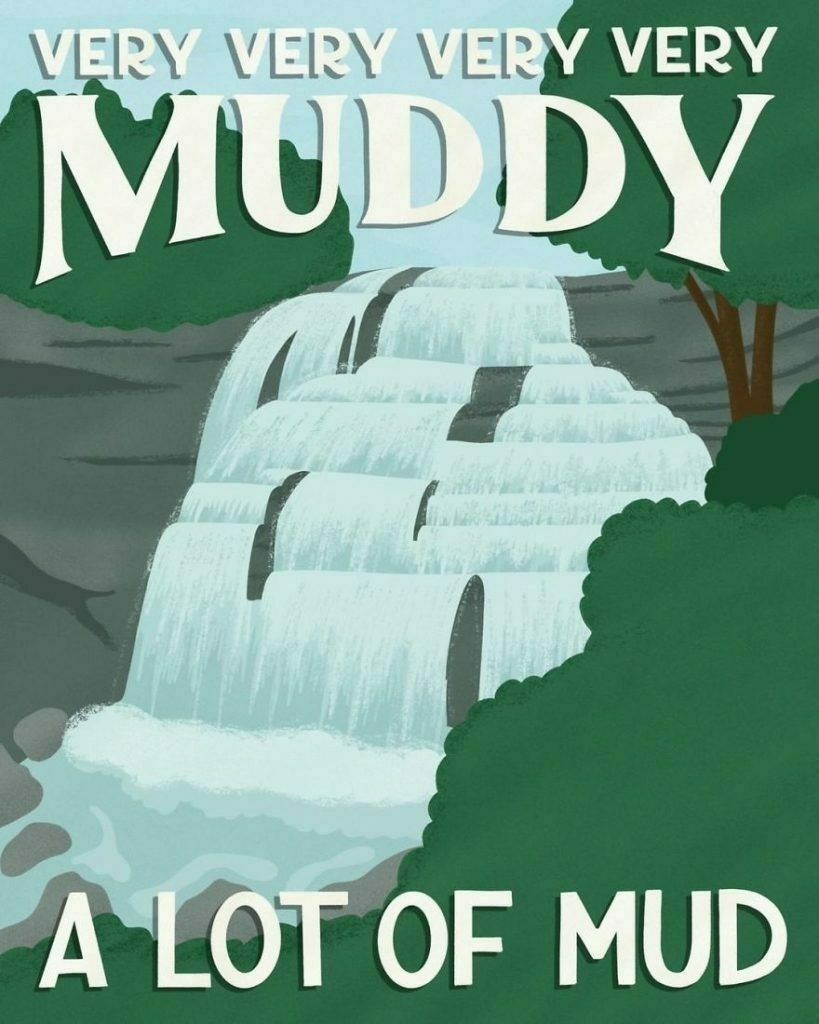
I Illustrated National Parks In America Based On Their Worst Review And I Hope They Will Make You Laugh (16 Pics)
I'm an illustrator and I have always had a personal goal to draw all 62 US National Parks, but I wanted to find a unique twist for the project. When I found that there are one-star reviews for every single park, the idea for Subpar Parks was born. For each park, I hand-letter a line from the one-star reviews alongside my illustration of each park as my way of putting a fun and beautiful twist on the negativity.
Amber Share (Bored Panda)
I love this, especially as the illustrations are so beautiful and the comments so banal.
What Does a Screen Do?
We know, for instance, that smartphone use is associated with depression in teens. Smartphone use certainly could be the culprit, but it’s also possible the story is more complicated; perhaps the causal relationship works the other way around, and depression drives teenagers to spend more time on their devices. Or, perhaps other details about their life—say, their family background or level of physical activity—affect both their mental health and their screen time. In short: Human behavior is messy, and measuring that behavior is even messier.
Jane C. Hu (Slate)
This, via Ian O'Byrne, is a useful read for anyone who deals with kids, especially teenagers.
13 reads to save for later: An open organization roundup
For months, writers have been showering us with multiple, ongoing series of articles, all focused on different dimensions of open organizational theory and practice. That's led to to a real embarrassment of riches—so many great pieces, so little time to catch them all.
So let's take moment to reflect. If you missed one (or several) now's your chance to catch up.
Bryan Behrenshausen (Opensource.com)
I've already shared some of the articles in this roundup, but I encourage you to check out the rest, and subscribe to opensource.com. It's a great source of information and guidance.
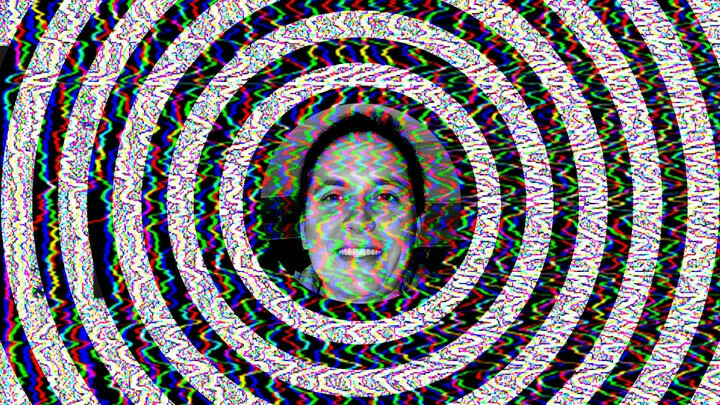
It Doesn’t Matter If Anyone Exists or Not
Capitalism has always transformed people into latent resources, whether as labor to exploit for making products or as consumers to devour those products. But now, online services make ordinary people enact both roles: Twitter or Instagram followers for conversion into scrap income for an influencer side hustle; Facebook likes transformed into News Feed-delivery refinements; Tinder swipes that avoid the nuisance of the casual encounters that previously fueled urban delight. Every profile pic becomes a passerby—no need for an encounter, even.
Ian Bogost (The Atlantic)
An amazing piece of writing, in which Ian Bogost not only surveys previous experiences with 'strangers' but applies it to the internet. As he points out, there is a huge convenience factor in not knowing who made your sandwich. I've pointed out before that capitalism is all about scale, and at the end of the day, caring doesn't scale, and scaling doesn't care.
You don't want quality time, you want garbage time
We desire quality moments and to make quality memories. It's tempting to think that we can create quality time just by designating it so, such as via a vacation. That generally ends up backfiring due to our raised expectations being let down by reality. If we expect that our vacation is going to be perfect, any single mistake ruins the experience
In contrast, you are likely to get a positive surprise when you have low expectations, which is likely the case during a "normal day". It’s hard to match perfection, and easy to beat normal. Because of this, it's more likely quality moments come out of chance
If you can't engineer quality time, and it's more a matter of random events, it follows that you want to increase how often such events happen. You can't increase the probability, but you can increase the duration for such events to occur. Put another way, you want to increase quantity of time, and not engineer quality time.
Leon Lin (Avoid boring people)
There's a lot of other interesting-but-irrelevant things in this newsletter, so scroll to the bottom for the juicy bit. I've quoted the most pertinent point, which I definitely agree with. There's wisdom in Gramsci's quotation about having "pessimism of the intellect, optimism of the will".
The Prodigal Techbro
The prodigal tech bro doesn’t want structural change. He is reassurance, not revolution. He’s invested in the status quo, if we can only restore the founders’ purity of intent. Sure, we got some things wrong, he says, but that’s because we were over-optimistic / moved too fast / have a growth mindset. Just put the engineers back in charge / refocus on the original mission / get marketing out of the c-suite. Government “needs to step up”, but just enough to level the playing field / tweak the incentives. Because the prodigal techbro is a moderate, centrist, regular guy. Dammit, he’s a Democrat. Those others who said years ago what he’s telling you right now? They’re troublemakers, disgruntled outsiders obsessed with scandal and grievance. He gets why you ignored them. Hey, he did, too. He knows you want to fix this stuff. But it’s complicated. It needs nuance. He knows you’ll listen to him. Dude, he’s just like you…
Maria Farrell (The Conversationalist)
Now that we're experiencing something of a 'techlash' it's unsurprising that those who created surveillance capitalism have had a 'road to Damascus' experience. That doesn't mean, as Maria Farrell points out, that we should all of a sudden consider them to be moral authorities.
Enjoy this? Sign up for the weekly roundup, become a supporter, or download Thought Shrapnel Vol.1: Personal Productivity!
We are too busy mopping the floor to turn off the faucet
Pandemics, remote work, and global phase shifts
Last week, I tweeted this:
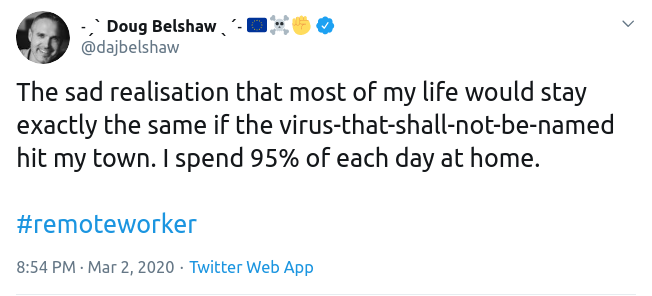
I get the feeling that, between film and TV shows on Netflix, Amazon deliveries, and social interaction on Twitter and Mastodon, beyond close friends and family, no-one would even realise if I'd been quarantined.
Writing in The Atlantic, Ian Bogost points out that Every Place Is the Same Now, because you go to every place with your personal screen, a digital portal to the wider world.
Anywhere has become as good as anywhere else. The office is a suitable place for tapping out emails, but so is the bed, or the toilet. You can watch television in the den—but also in the car, or at the coffee shop, turning those spaces into impromptu theaters. Grocery shopping can be done via an app while waiting for the kids’ recital to start. Habits like these compress time, but they also transform space. Nowhere feels especially remarkable, and every place adopts the pleasures and burdens of every other. It’s possible to do so much from home, so why leave at all?
Ian Bogost (The Atlantic)
If you're a knowledge worker, someone who deals with ideas and virtual objects rather than things in 'meatspace', then there is nothing tying you to a particular geographical place. This may be liberating, but it's also quite... weird.
It’s easy but disorienting, and it makes the home into a very strange space. Until the 20th century, one had to leave the house for almost anything: to work, to eat or shop, to entertain yourself, to see other people. For decades, a family might have a single radio, then a few radios and a single television set. The possibilities available outside the home were far greater than those within its walls. But now, it’s not merely possible to do almost anything from home—it’s also the easiest option. Our forebears’ problem has been inverted: Now home is a prison of convenience that we need special help to escape.
Ian Bogost (The Atlantic)
I've worked from home for the last eight years, and now can't imagine going back to working any other way. Granted, I get to travel pretty much every month, but that 95% being-at-home statistic still includes my multi-day international trips.
I haven't watched it recently, but in 2009 a film called Surrogates starring Bruce Willis foreshadowed the kind of world we're creating. Here's the synopsis via IMDB:
People are living their lives remotely from the safety of their own homes via robotic surrogates — sexy, physically perfect mechanical representations of themselves. It's an ideal world where crime, pain, fear and consequences don't exist. When the first murder in years jolts this utopia, FBI agent Greer discovers a vast conspiracy behind the surrogate phenomenon and must abandon his own surrogate, risking his life to unravel the mystery.
IMDB
If we replace the word 'robotic' with 'virtual' in this plot summary, then it's a close approximation to the world in which some of us now live. Facetuned Instagram selfies project a perfect life. We construct our own narratives and then believe the story we have concocted. Everything is amazing but no-one's happy.
Even Zoom, the videoconferencing software I use most days for work, has an option to smooth out wrinkles, change your background, and make everything look a bit more sparkly. Our offline lives can be gloriously mundane, but online, thanks to various digital effects, we can make them look glorious. And why wouldn't we?
I think we'll see people and businesses optimising for how they look and sound online, including recruitment. The ability to communicate effectively at a distance with people who you may never meet in person is a skill that's going to be in high demand, if it isn't already.
Remote working may be a trend, but one which is stubbornly resisted by some bosses who are convinced they have to keep a close eye on employees to get any work out of them.
However, when those bosses are forced to implement remote working policies to keep their businesses afloat, and nothing bad happens as a result, this attitude can, and probably will, change. Remote working, when done properly, is not only more cost-effective for businesses, but often leads to higher productivity and self-reported worker happiness.
Being 'good in the room' is fine, and I'm sure it will always be highly prized, but I also see confident, open working practices as something that's rising in perceived value. Chairing successful online meetings is at least as important as chairing ones offline, for example. We need to think of ways of being able recognise these remote working skills, as it's not something in which you can receive a diploma.
For workers, of course, there are so many benefits of working from home that I'm not even sure where to start. Your health, relationships, and happiness are just three things that are likely to dramatically improve when you start working remotely.
For example, let's just take the commute. This dominates the lives of non-remote workers, usually taking an hour or more out of a their day — every day. Commuting is tiring and inconvenient, but people are currently willing to put up with long commutes to afford a decently-sized house, or to live in a nicer area.
So, let's imagine that because of the current pandemic (which some are calling the world's biggest remote-working experiment) businesses decide that having their workers being based from home has multi-faceted benefits. What happens next?
Well, if a large percentage (say we got up to ~50%) of the working population started working remotely over the next few months and years, this would have a knock-on effect. We'd see changes in:
...to name but a few. I think it would be a huge net benefit for society, and hopefully allow for much greater civic engagement and democratic participation.
I'll conclude with a quotation from Nafeez Ahmed's excellent (long!) post on what he's calling a global phase shift. Medium says it's a 30-minute read, but I reckon it's about half that.
Ahmed points out in stark detail the crisis, potential future scenarios, and the opportunity we've got. I particularly appreciate his focus on the complete futility of what he calls "a raw, ‘fend for yourself’ approach". We must work together to solve the world's problems.
The coronavirus outbreak is, ultimately, a lesson in not just the inherent systemic fragilities in industrial civilization, but also the limits of its underlying paradigm. This is a paradigm premised on a specific theory of human nature, the neoclassical view of Homo-Economicus, human beings as dislocated units which compete with each other to maximise their material self-gratification through endless consumption and production. That paradigm and its values have brought us so far in our journey as a species, but they have long outlasted their usefulness and now threaten to undermine our societies, and even our survival as a species.
Getting through coronavirus will be an exercise not just in building societal resilience, but relearning the values of cooperation, compassion, generosity and kindness, and building systems which institutionalize these values. It is high time to recognize that such ethical values are not simply human constructs, products of socialization. They are cognitive categories which reflect patterns of behaviour in individuals and organizations that have an evolutionary, adaptive function. In the global phase shift, systems which fail to incorporate these values into their structures will eventually die.
Nafeez Ahmed
Just as crises can be manufactured by totalitarian regimes to seize power and control populations, perhaps natural crises can be used to make us collectively realise we need to pull together?
Enjoy this? Sign up for the weekly roundup, become a supporter, or download Thought Shrapnel Vol.1: Personal Productivity!
Header image by pan xiaozhen. Anonymous quotation-as-title taken from Scott Klososky's The Velocity Manifesto
Friday filchings
I'm having to write this ahead of time due to travel commitments. Still, there's the usual mixed bag of content in here, everything from digital credentials through to survival, with a bit of panpsychism thrown in for good measure.
Did any of these resonate with you? Let me know!
Competency Badges: the tail wagging the dog?
Recognition is from a certain point of view hyperlocal, and it is this hyperlocality that gives it its global value – not the other way around. The space of recognition is the community in which the competency is developed and activated. The recognition of a practitioner in a community is not reduced to those generally considered to belong to a “community of practice”, but to the intersection of multiple communities and practices, starting with the clients of these practices: the community of practice of chefs does not exist independently of the communities of their suppliers and clients. There is also a very strong link between individual recognition and that of the community to which the person is identified: shady notaries and politicians can bring discredit on an entire community.
Serge Ravet
As this roundup goes live I'll be at Open Belgium, and I'm looking forward to catching up with Serge while I'm there! My take on the points that he's making in this (long) post is actually what I'm talking about at the event: open initiatives need open organisations.
Universities do not exist ‘to produce students who are useful’, President says
Mr Higgins, who was opening a celebration of Trinity College Dublin’s College Historical Debating Society, said “universities are not there merely to produce students who are useful”.
“They are there to produce citizens who are respectful of the rights of others to participate and also to be able to participate fully, drawing on a wide range of scholarship,” he said on Monday night.
The President said there is a growing cohort of people who are alienated and “who feel they have lost their attachment to society and decision making”.
Jack Horgan-Jones (The Irish Times)
As a Philosophy graduate, I wholeheartedly agree with this, and also with his assessment of how people are obsessed with 'markets'.
Perennial philosophy
Not everyone will accept this sort of inclusivism. Some will insist on a stark choice between Jesus or hell, the Quran or hell. In some ways, overcertain exclusivism is a much better marketing strategy than sympathetic inclusivism. But if just some of the world’s population opened their minds to the wisdom of other religions, without having to leave their own faith, the world would be a better, more peaceful place. Like Aldous Huxley, I still believe in the possibility of growing spiritual convergence between different religions and philosophies, even if right now the tide seems to be going the other way.
Jules Evans (Aeon)
This is an interesting article about the philosophy of Aldous Huxley, whose books have always fascinated me. For some reason, I hadn't twigged that he was related to Thomas Henry Huxley (aka "Darwin's bulldog").

What the Death of iTunes Says About Our Digital Habits
So what really failed, maybe, wasn’t iTunes at all—it was the implicit promise of Gmail-style computing. The explosion of cloud storage and the invention of smartphones both arrived at roughly the same time, and they both subverted the idea that we should organize our computer. What they offered in its place was a vision of ease and readiness. What the idealized iPhone user and the idealized Gmail user shared was a perfect executive-functioning system: Every time they picked up their phone or opened their web browser, they knew exactly what they wanted to do, got it done with a calm single-mindedness, and then closed their device. This dream illuminated Inbox Zero and Kinfolk and minimalist writing apps. It didn’t work. What we got instead was Inbox Infinity and the algorithmic timeline. Each of us became a wanderer in a sea of content. Each of us adopted the tacit—but still shameful—assumption that we are just treading water, that the clock is always running, and that the work will never end.
Robinson Meyer (The Atlantic)
This is curiously-written (and well-written) piece, in the form of an ordered list, that takes you through the changes since iTunes launched. It's hard to disagree with the author's arguments.
Imagine a world without YouTube
But what if YouTube had failed? Would we have missed out on decades of cultural phenomena and innovative ideas? Would we have avoided a wave of dystopian propaganda and misinformation? Or would the internet have simply spiraled into new — yet strangely familiar — shapes, with their own joys and disasters?
Adi Robertson (The Verge)
I love this approach of imagining how the world would have been different had YouTube not been the massive success it's been over the last 15 years. Food for thought.
Big Tech Is Testing You
It’s tempting to look for laws of people the way we look for the laws of gravity. But science is hard, people are complex, and generalizing can be problematic. Although experiments might be the ultimate truthtellers, they can also lead us astray in surprising ways.
Hannah Fry (The New Yorker)
A balanced look at the way that companies, especially those we classify as 'Big Tech' tend to experiment for the purposes of engagement and, ultimately, profit. Definitely worth a read.

Trust people, not companies
The trend to tap into is the changing nature of trust. One of the biggest social trends of our time is the loss of faith in institutions and previously trusted authorities. People no longer trust the Government to tell them the truth. Banks are less trusted than ever since the Financial Crisis. The mainstream media can no longer be trusted by many. Fake news. The anti-vac movement. At the same time, we have a generation of people who are looking to their peers for information.
Lawrence Lundy (Outlier Ventures)
This post is making the case for blockchain-based technologies. But the wider point is a better one, that we should trust people rather than companies.
The Forest Spirits of Today Are Computers
Any sufficiently advanced technology is indistinguishable from nature. Agriculture de-wilded the meadows and the forests, so that even a seemingly pristine landscape can be a heavily processed environment. Manufactured products have become thoroughly mixed in with natural structures. Now, our machines are becoming so lifelike we can’t tell the difference. Each stage of technological development adds layers of abstraction between us and the physical world. Few people experience nature red in tooth and claw, or would want to. So, although the world of basic physics may always remain mindless, we do not live in that world. We live in the world of those abstractions.
George Musser (Nautilus)
This article, about artificial 'panpsychism' is really challenging to the reader's initial assumptions (well, mine at least) and really makes you think.
The man who refused to freeze to death
It would appear that our brains are much better at coping in the cold than dealing with being too hot. This is because our bodies’ survival strategies centre around keeping our vital organs running at the expense of less essential body parts. The most essential of all, of course, is our brain. By the time that Shatayeva and her fellow climbers were experiencing cognitive issues, they were probably already experiencing other organ failures elsewhere in their bodies.
William Park (BBC Future)
Not just one story in this article, but several with fascinating links and information.
Enjoy this? Sign up for the weekly roundup and/or become a supporter!
Header image by Tim Mossholder.
Friday feelings
It's Friday again, so I'm here trawling through not only the most interesting stuff that I've read this week, but also verbs that begin with the letter 'f'.
Happy Valentine's Day! Especially to my wonderful wife Hannah. We'll have been together 20 years this coming May 😍
Flying to Conferences
The problem - and the solution - to the issues of environment and poverty and the rest lie in the hands of those people who have the power to change what we're doing as a society, the one percent who hold most of the world's power and wealth. They benefit from environmental degradation and we pay the price, just as they benefit from oppressive labour laws, the corruption of government officials, and ownership of real and intellectual property.
Stephen Downes (halfanhour)
This is a fantastic post and one that's made me feel a bit better about the travel I do for work. Downes deconstructs various arguments, and shows the systemic problems around sustainability. Highly recommended.
Why innovation can't happen without standardization
Perceptions play a role in the conflict between standardization and innovation. People who only want to focus on standardization must remember that even the tools and processes that they want to promote as "the standard" were once new and represented change. Likewise, people who only want to focus on innovation have to remember that in order for a tool or process to provide value to an organization, it has to be stable enough for that organization to use it over time.
Len Dimaggio (opensource.com)
Opensource.com is celebrating its 10-year anniversary, and it's also a decade since I seem to have written for the first time about innovation being predicated on standardisation. I then expanded upon that a year later in this post. As DiMaggio says, innovation and standardisation are two halves of one solution.
How to reduce digital distractions: advice from medieval monks
Distraction is an old problem, and so is the fantasy that it can be dodged once and for all. There were just as many exciting things to think about 1,600 years ago as there are now. Sometimes it boggled the mind.
Jamie Kreiner (aeon)
This, via Kottke, has a title rendolent of clickbait, and is an amusing diversion. It's conclusion, however, is important, that distraction isn't due to our smartphones, but due to the ways our brains are wired, and our lack of practice concentrating on things that are of importance and value.
How Medieval Manuscript Makers Experimented with Graphic Design
The greater availability of paper in the 15th century meant more people could make books, with medical texts being some of the most popular. A guide to diagnosing diseases based on the colors of urine — a common approach in the era — has two pages illustrating several flasks, so the reader could readily compare this organized knowledge. A revolving “volvelle” diagram on another manuscript allowed readers to make their own astronomical calculations for the moon and time of night. Scraps of medieval songs on loose pages and herbals further demonstrate how practical usage was important in medieval design.
Allison Meier
I think I came across this via Hacker News, which is always a great place to find interesting stuff, technical and otherwise. The photographs and illustrations are just beautiful.
Yong Zhao: PISA Peculiarities (2): Should Schools Promote a Competitive or Cooperative Culture?
As I have written elsewhere, PISA has the bad habit of looking for things that would work universally to improve education or at least test scores and ignoring contextual factors that may actually play a more important role in the quality of education. In so doing, PISA does not (or cannot) have a coherent conceptual framework for understanding education as a contextual and situated phenomenon. As a result, it just throws various variables into the equation and wishes that some would turn out to be the magical policy or practice that improves education, without thinking how the variables act and interact with each other in specific contexts.
Yong Zhao (National education policy center)
Via Stephen Downes, I really appreciate this analysis of PISA test results, which compare students from different countries. To my mind, capitalism perpetuates the myth that we're all in competition with each other, inculcating it at school. Nothing could be further from the truth; we humans are communicators and co-operators.
1,000 True Fans? Try 100
The 100 True Fans concept isn’t for everyone, nor is 1,000 True Fans. Creators that have larger, more diffuse audiences with weaker allegiance or engagement are likely better off monetizing through sponsorships or branded products. For many, that path will be more lucrative—and require less heavy lifting—than designing the sort of high-value, personalized program 100 True Fans demand.
Li Jin (A16z)
An interesting read. There are currently 53 patrons of Thought Shrapnel, a number that I had hoped would be much higher by this point. Perhaps I need to pivot into exclusive content, or perhaps just return to sponsorship?
Regulator Ofcom to have more powers over UK social media
The government has now announced it is "minded" to grant new powers to Ofcom - which currently only regulates the media and the telecoms industry, not internet safety.
Ofcom will have the power to make tech firms responsible for protecting people from harmful content such as violence, terrorism, cyber-bullying and child abuse - and platforms will need to ensure that content is removed quickly.
They will also be expected to "minimise the risks" of it appearing at all.
BBC News
While I'm all for reducing the amount of distressing, radicalising, and harmful content accessed by vulnerable people, I do wonder exactly how this will work. A slide in a recent 'macro trends' deck by Benedict Evans shows the difficulties faced by platforms, and society more generally.

Why People Get the ‘Sunday Scaries’
When I asked Anne Helen Petersen what would cure the Sunday scaries, she laughed and gave a two-word answer: “Fix capitalism.” “You have to get rid of the conditions that are creating precarity,” she says. “People wouldn't think that universal health care has anything to do with the Sunday scaries, but it absolutely does … Creating a slightly different Sunday routine isn't going to change the massive structural problems.”
One potential system-wide change she has researched—smaller than implementing universal health care, but still big—is a switch to a four-day workweek. “When people had that one more day of leisure, it opened up so many different possibilities to do the things you actually want to do and to actually feel restored,” she says.
Joe Pinsker (The Atlantic)
As one t-shirt I saw put it: "You don't hate Mondays. You hate Capitalism."
A 2020 Retrospective on the History of Work
The future of work is Open. Open work practices allow for unhindered access to the right context, the bigger picture, and important information when it’s needed most. All teams can do amazing things when they work Open.
Atlassian
Via Kottke, this is an interesting summary of changes in the workplace since the 1950s. And of course, given I'm part of a co-op that "works to spread the culture, processes and benefits of open" the conclusion is spot-on.
Enjoy this? Sign up for the weekly roundup and/or become a supporter!
Image by Nicola Fioravanti
Friday flurries
It's been a busy week, but I've still found time to unearth these gems...
Image via xkcd
Friday fertilisations
I've read so much stuff over the past couple of months that it's been a real job whittling down these links. In the end I gave up and shared a few more than usual!
Image via Kottke.org
I am not fond of expecting catastrophes, but there are cracks in the universe
So said Sydney Smith. Let's talk about surveillance. Let's talk about surveillance capitalism and surveillance humanitarianism. But first, let's talk about machine learning and algorithms; in other words, let's talk about what happens after all of that data is collected.
Writing in The Guardian, Sarah Marsh investigates local councils using "automated guidance systems" in an attempt to save money.
The systems are being deployed to provide automated guidance on benefit claims, prevent child abuse and allocate school places. But concerns have been raised about privacy and data security, the ability of council officials to understand how some of the systems work, and the difficulty for citizens in challenging automated decisions.
Sarah Marsh
The trouble is, they're not particularly effective:
It has emerged North Tyneside council has dropped TransUnion, whose system it used to check housing and council tax benefit claims. Welfare payments to an unknown number of people were wrongly delayed when the computer’s “predictive analytics” erroneously identified low-risk claims as high risk
Meanwhile, Hackney council in east London has dropped Xantura, another company, from a project to predict child abuse and intervene before it happens, saying it did not deliver the expected benefits. And Sunderland city council has not renewed a £4.5m data analytics contract for an “intelligence hub” provided by Palantir.
Sarah Marsh
When I was at Mozilla there were a number of colleagues there who had worked on the OFA (Obama For America) campaign. I remember one of them, a DevOps guy, expressing his concern that the infrastructure being built was all well and good when there's someone 'friendly' in the White House, but what comes next.
Well, we now know what comes next, on both sides of the Atlantic, and we can't put that genie back in its bottle. Swingeing cuts by successive Conservative governments over here, coupled with the Brexit time-and-money pit means that there's no attention or cash left.
If we stop and think about things for a second, we probably wouldn't don't want to live in a world where machines make decisions for us, based on algorithms devised by nerds. As Rose Eveleth discusses in a scathing article for Vox, this stuff isn't 'inevitable' — nor does it constitute a process of 'natural selection':
Often consumers don’t have much power of selection at all. Those who run small businesses find it nearly impossible to walk away from Facebook, Instagram, Yelp, Etsy, even Amazon. Employers often mandate that their workers use certain apps or systems like Zoom, Slack, and Google Docs. “It is only the hyper-privileged who are now saying, ‘I’m not going to give my kids this,’ or, ‘I’m not on social media,’” says Rumman Chowdhury, a data scientist at Accenture. “You actually have to be so comfortable in your privilege that you can opt out of things.”
And so we’re left with a tech world claiming to be driven by our desires when those decisions aren’t ones that most consumers feel good about. There’s a growing chasm between how everyday users feel about the technology around them and how companies decide what to make. And yet, these companies say they have our best interests in mind. We can’t go back, they say. We can’t stop the “natural evolution of technology.” But the “natural evolution of technology” was never a thing to begin with, and it’s time to question what “progress” actually means.
Rose Eveleth
I suppose the thing that concerns me the most is people in dire need being subject to impersonal technology for vital and life-saving aid.
For example, Mark Latonero, writing in The New York Times, talks about the growing dangers around what he calls 'surveillance humanitarianism':
By surveillance humanitarianism, I mean the enormous data collection systems deployed by aid organizations that inadvertently increase the vulnerability of people in urgent need.
Despite the best intentions, the decision to deploy technology like biometrics is built on a number of unproven assumptions, such as, technology solutions can fix deeply embedded political problems. And that auditing for fraud requires entire populations to be tracked using their personal data. And that experimental technologies will work as planned in a chaotic conflict setting. And last, that the ethics of consent don’t apply for people who are starving.
Mark Latonero
It's easy to think that this is an emergency, so we should just do whatever is necessary. But Latonero explains the risks, arguing that the risk is shifted to a later time:
If an individual or group’s data is compromised or leaked to a warring faction, it could result in violent retribution for those perceived to be on the wrong side of the conflict. When I spoke with officials providing medical aid to Syrian refugees in Greece, they were so concerned that the Syrian military might hack into their database that they simply treated patients without collecting any personal data. The fact that the Houthis are vying for access to civilian data only elevates the risk of collecting and storing biometrics in the first place.
Mark Latonero
There was a rather startling article in last weekend's newspaper, which I've found online. Hannah Devlin, again writing in The Guardian (which is a good source of information for those concerned with surveillance) writes about a perfect storm of social media and improved processing speeds:
[I]n the past three years, the performance of facial recognition has stepped up dramatically. Independent tests by the US National Institute of Standards and Technology (Nist) found the failure rate for finding a target picture in a database of 12m faces had dropped from 5% in 2010 to 0.1% this year.
The rapid acceleration is thanks, in part, to the goldmine of face images that have been uploaded to Instagram, Facebook, LinkedIn and captioned news articles in the past decade. At one time, scientists would create bespoke databases by laboriously photographing hundreds of volunteers at different angles, in different lighting conditions. By 2016, Microsoft had published a dataset, MS Celeb, with 10m face images of 100,000 people harvested from search engines – they included celebrities, broadcasters, business people and anyone with multiple tagged pictures that had been uploaded under a Creative Commons licence, allowing them to be used for research. The dataset was quietly deleted in June, after it emerged that it may have aided the development of software used by the Chinese state to control its Uighur population.
In parallel, hardware companies have developed a new generation of powerful processing chips, called Graphics Processing Units (GPUs), uniquely adapted to crunch through a colossal number of calculations every second. The combination of big data and GPUs paved the way for an entirely new approach to facial recognition, called deep learning, which is powering a wider AI revolution.
Hannah Devlin
Those of you who have read this far and are expecting some big reveal are going to be disappointed. I don't have any 'answers' to these problems. I guess I've been guilty, like many of us have, of the kind of 'privacy nihilism' mentioned by Ian Bogost in The Atlantic:
Online services are only accelerating the reach and impact of data-intelligence practices that stretch back decades. They have collected your personal data, with and without your permission, from employers, public records, purchases, banking activity, educational history, and hundreds more sources. They have connected it, recombined it, bought it, and sold it. Processed foods look wholesome compared to your processed data, scattered to the winds of a thousand databases. Everything you have done has been recorded, munged, and spat back at you to benefit sellers, advertisers, and the brokers who service them. It has been for a long time, and it’s not going to stop. The age of privacy nihilism is here, and it’s time to face the dark hollow of its pervasive void.
Ian Bogost
The only forces that we have to stop this are collective action, and governmental action. My concern is that we don't have the digital savvy to do the former, and there's definitely the lack of will in respect of the latter. Troubling times.
Friday flexitarianism
Check these links out and tell me which one you like best:
Image by Yung-sen Wu (via The Atlantic)
Friday fermentations
I boiled the internet and this was what remained:
Friday federations
These things piqued my interest this week:
Image: Federation Square by Julien used under a Creative Commons license
Friday ferretings
These things jumped out at me this week:
Image from Guillermo Acuña fronts his remote Chilean retreat with large wooden staircase (Dezeen)
Aren’t you ashamed to reserve for yourself only the remnants of your life and to dedicate to wisdom only that time can’t be directed to business?
Once you remove the specific details from the lives of the ancients, their lives were remarkably like ours. Take today's title, for example, which is a quotation from Seneca. He knew what it was like to be so busy doing 'productive' things to the exclusion of almost everything else.
My good friend Laura Hilliger wears her heart on her sleeve, and is the most no-nonsense person I know. By observing the way she lives and works, I'm learning to set limits and say exactly what I think:
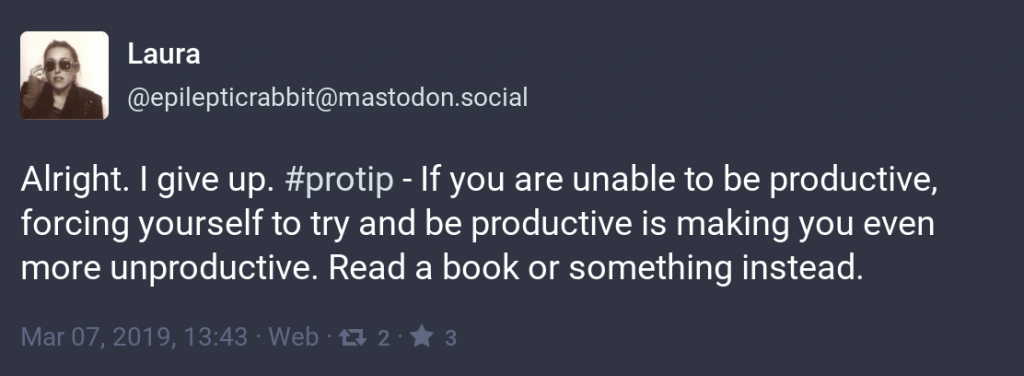
The thing is that western society, implicitly at least, assumes that people are 'fixed' in terms of their personality and likes. But that's just the way that we choose to see ourselves:
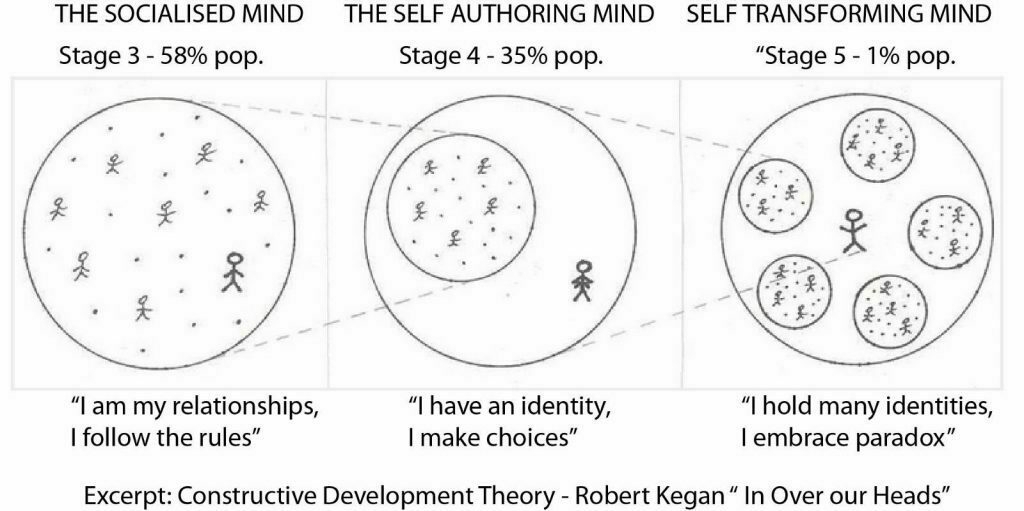
I feel that the biggest thing that constrains us is our view of how we think other people see us. That perceived expectation becomes internalised, creating a 'psychic prison' which becomes an extremely limited playground. For better or for worse, we perform the role of how we think other people have come to see us.
One way many people find to avoid responsibility for their life choices is to play the 'busy' card. They're too busy to make good decisions, to look after their mental and physical health, to ensure that they're doing your best work.
The trouble is, that's simply not true. We've got more free time than our parents and grandparents:
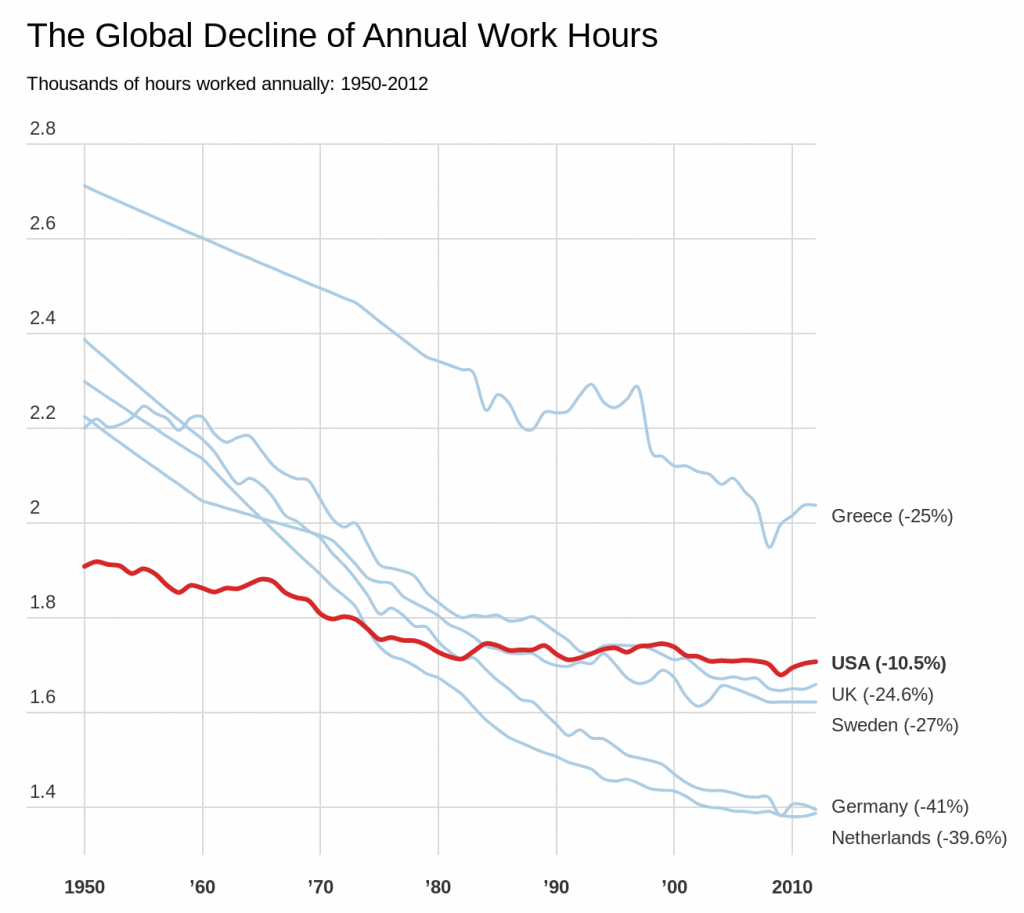
As the above chart demonstrates, it's not true that we actually work more hours. Instead, I think, it's that we're so concerned about how other people see us that we spend time doing things that feel like work but are mostly to do with presentation of self. Hence the amount of time spent on social networks like Instagram trying to create the highlights reel of our lives to show others.
One way of viewing this is that we've collectively internalised capitalism. The logic of the market has become as invisible to us as an ideology as water is to fish. In fact, some people say it's easier to imagine the end of the world than the end of capitalism!
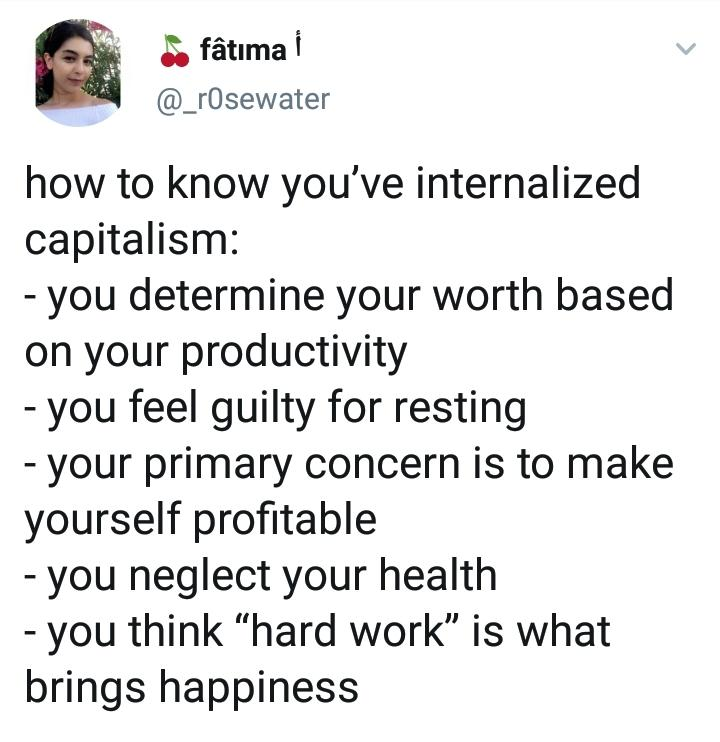
Of course, it's become something of a cliché in our pseudo-enlightened times to talk of capitalism as the meta-problem behind everything. But that doesn't make it any less true.
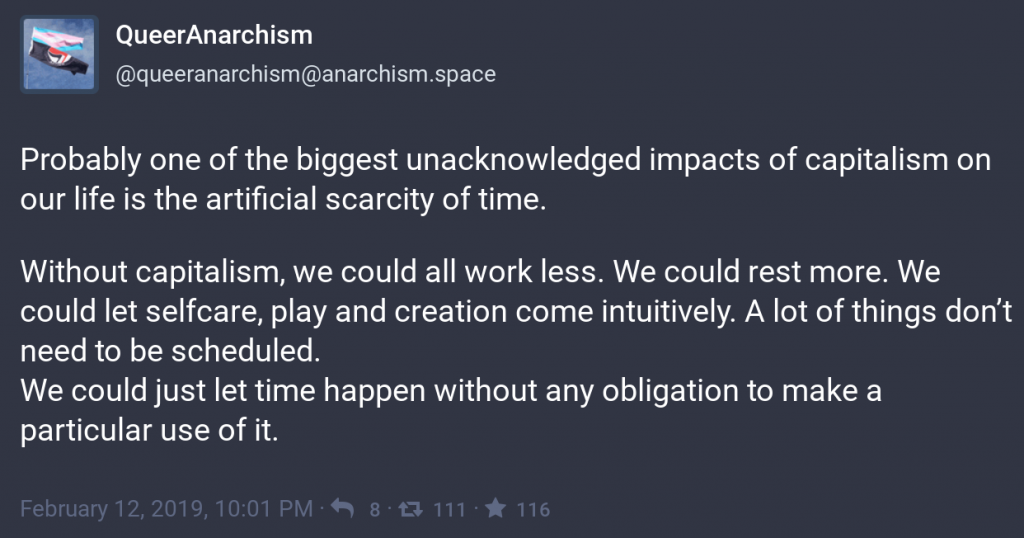
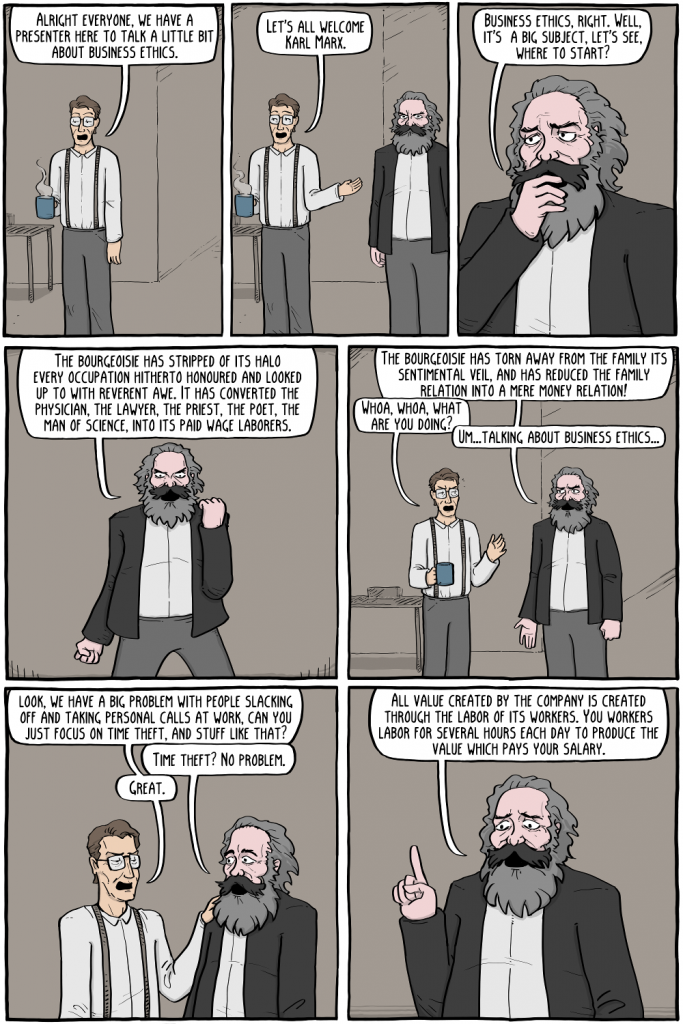
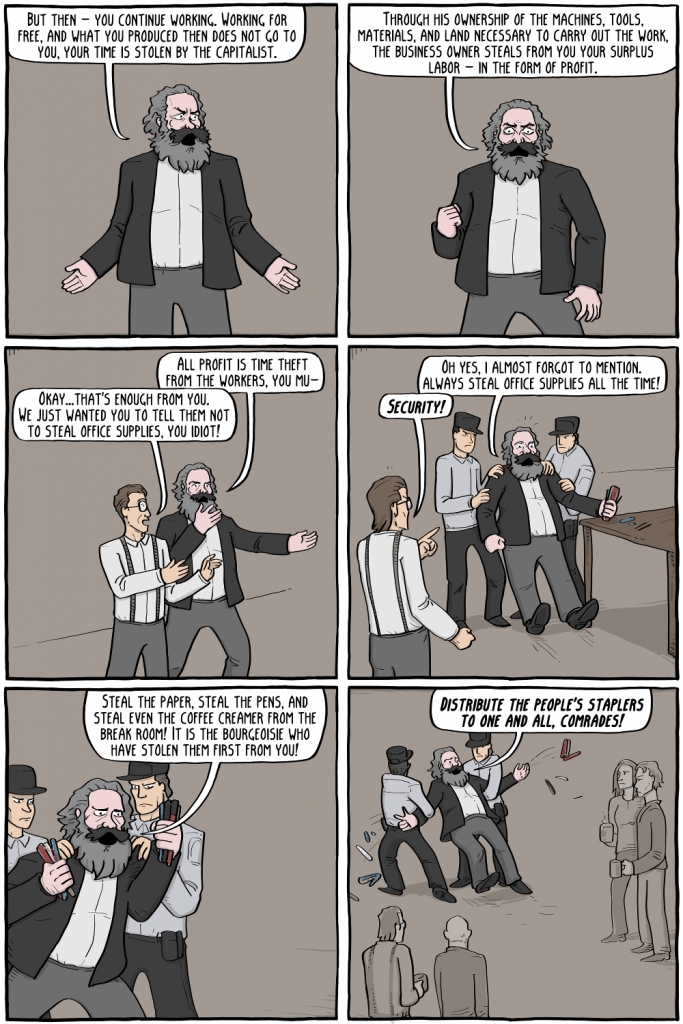
Our identity is mediated by the market, by what we produce instead of who we are. I keep coming back to a fantastic episode of Jocelyn K. Glei's Hurry Slowly podcast entitled Who Are You Without The Doing? in which she explains that we should learn to 'sit with ourselves', learning that change comes from within:
You have to completely conquer the feeling that there is something fundamentally wrong with your human nature, and that therefore you need discipline to correct your behavior. As long as you feel the discipline comes from the outside, there is still a feeling that something is lacking in you.
Jocelyn K. Glei
Derek Sivers uses the metaphor of 'doors' to explain where he finds value and wants to spend time doing. Some doors he opens and it helps him grow as a person and fosters positive relationships.
But one door is really no fun to open. I’m horrified at all the shouting, the second I open it. It’s an infinite dark room filled with psychologically tortured people, trying to get attention. Strangers screaming at strangers, starting fights. Businesses set up shop there, showing who’s said and done bad things today, because they make money when people get mad.
Derek Sivers
We keep wringing our hands about people's behaviour online, but it's that way for a reason. Hate is profitable for social networks:
Massive platforms like Facebook, Twitter, and YouTube “optimize for engagement,” and make automatic, algorithmic suggestions for every bit of content or action. From “you might also like” to “recommended just for you” to prioritizing things — anything — that will get you to click, comment, or share.
[...]
They know what will catch your attention. They know what will get you “engaged.” They know what will be more likely to lead you deeper into a rabbit hole, and what will make it harder to climb back out. Is it a literal, iron-clad trap? No. But the slippery, spiral path that leads people to the darkest corners of the internet is not an accident.
[...]
Hate is profitable. Conflict is profitable. Schadenfreude and shame are profitable. While we smugly point fingers, tsk-tsk, and think we’re being clever as we strategically dole out likes and shares, we forget that we are all just gruel-fed hamsters running on wheels deep inside giant, hyper-engineered, artificially intelligent, fully gamified, corporate-controlled virtual worlds that we absurdly think belong to us.
Ryan Ozawa
This all comes back to the time equation. Because we feel like we don't have enough time to curate things ourselves, we outsource that to others. That ends up with handing our information environments over to others to manipulate and control. It's curate or be curated.
Nobody cares about how much money you earn. Nobody cares how productive you are. Not really.
Also, without sounding harsh, nobody else cares how productive you are. Of course, productivity is important for important things, and “getting stuff done” or whatever, but it doesn’t define you in any way. What does is things like your sense of humour, where your passions lie, how you comfort a friend who’s upset, and that weird noise you make when the delivery guy calls you to say he’s outside with your food.
Leila Mitwally
The trouble is that we don't want to have this conversation, because it questions our identity, and everything we've been working for over our careers and throughout our lives:
But we don’t want to hear that because accepting this truth means asking a lot of complicated questions about our society, in which work is glorified as the pinnacle of self-expression, and personal earnings are viewed as a measure of merit and esteem.
Instead, we would instead read about buy into the idea that success in our work life is a merely a matter of being more productive. If you just follow the ‘right’ set of algorithms or rules, you too can achieve ‘success’ in your work life, along with fame and recognition and a fat bank account.
Richard Whittall
So, to finish, let me revisit a link I shared recently from Jason Hickel. We can choose to live differently, to recognise the abundance of time and resources we have in the world. To slow down, to take stock, and reject economic growth as in any way a useful indicator of human flourishing:
It doesn’t have to be this way. We can call a halt to the madness – throw a wrench in the juggernaut. By de-enclosing social goods and restoring the commons, we can ensure that people are able to access the things that they need to live a good life without having to generate piles of income in order to do so, and without feeding the never-ending growth machine. “Private riches” may shrink, as Lauderdale pointed out, but public wealth will increase.
Jason Hickel
It doesn't have to be difficult. We can just, as Dan Lyons mentions in his book Lab Rats, decide to work on things that 'close the gap' or 'increase the gap'. What that means to you, in your context, is a different matter.

